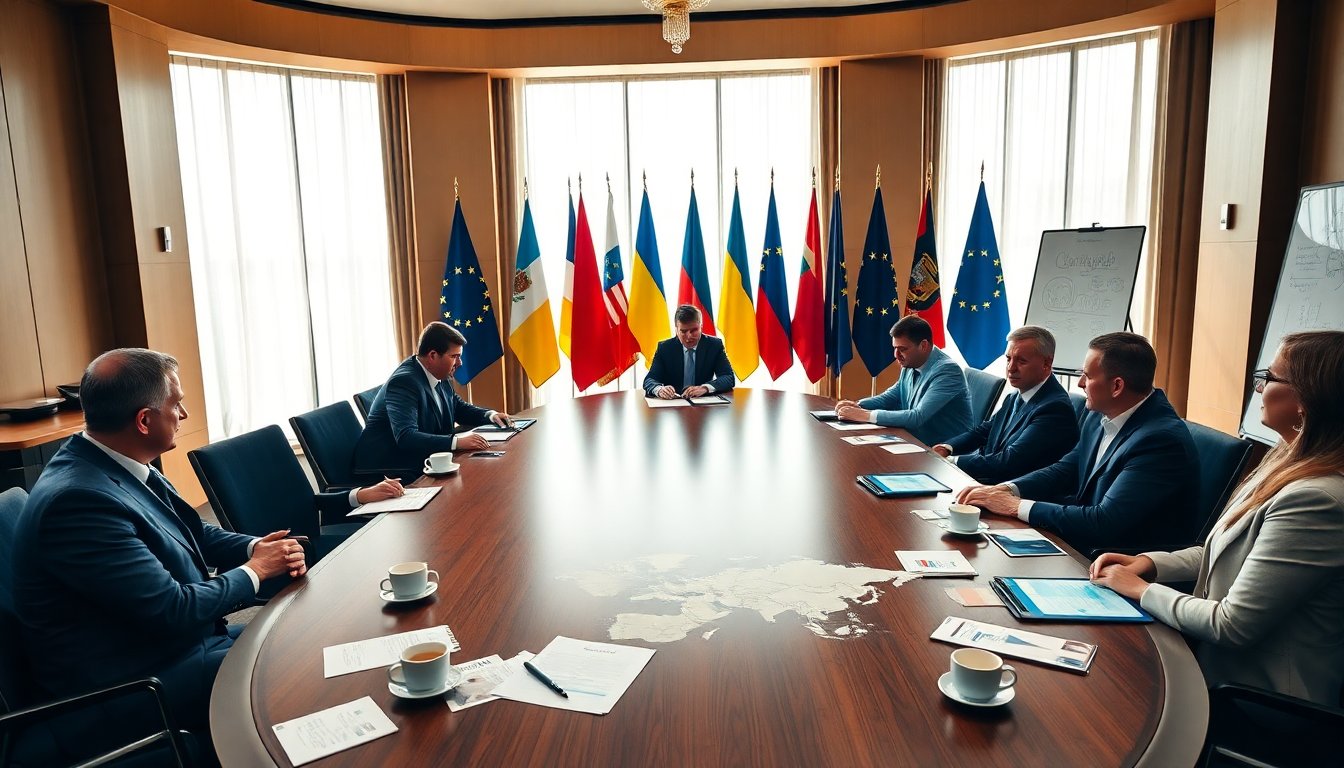Table of Contents
In a significant step towards establishing a robust security framework for Ukraine, European leaders participated in discussions with U.S. President Donald Trump after a summit with Ukrainian President Volodymyr Zelensky. This summit focused on potential security guarantees for Kyiv amid ongoing hostilities that have lasted for over three years. The outcome of these discussions remains uncertain, as leaders continue to struggle to reach a consensus on the specifics of the guarantees.
The Nature of Security Guarantees
The proposed guarantees from the coalition of willing nations are largely undisclosed but are expected to include enhanced military training for Ukraine and possibly the deployment of troops from various European states. This strategy has raised concerns in Moscow, reflecting escalating tensions as Russia observes Europe’s increasing military cooperation with Ukraine.
French President Emmanuel Macron is leading this initiative, aiming to show that Europe can assert its independence from U.S. foreign policy, particularly following Trump’s controversial engagement with Russian President Vladimir Putin. This summit, co-chaired by Macron and British Prime Minister Keir Starmer, aimed to solidify plans to support Ukraine in the event of a ceasefire while clarifying the role the United States would play in this complex geopolitical situation.
During the discussions, Trump’s special envoy, Steve Witkoff, represented U.S. interests and met separately with Zelensky to discuss the implications of the summit. This dialogue highlights the intricate dynamics at play, with various leaders participating both in person and via videoconference.
Implications for Ukraine and Europe
The discussions surrounding Ukraine’s security are particularly crucial given the ongoing conflict and the potential for a peace agreement. European nations are increasingly acknowledging the need to bolster Ukraine’s defenses to safeguard its sovereignty and maintain regional stability. The proposed guarantees could act as a deterrent against further Russian aggression.
As the situation evolves, it is essential for Ukraine to secure substantial and credible assurances from its European allies. The potential deployment of troops and military training represents a more proactive stance by European nations, indicating a strategic shift that could reshape the security landscape of Eastern Europe.
Moreover, the summit reflects a broader trend of European nations seeking to enhance their military capabilities and cooperation independently of U.S. directives. This could lead to a more unified and strategic approach to security in the region, fostering greater collaboration among European states in addressing common threats.
Looking Ahead
As the discussions continue, the coming weeks will be pivotal in determining the specifics of these security guarantees. Leaders are expected to focus on ensuring that Ukraine receives the necessary support to navigate the complexities of the ongoing conflict.
Furthermore, the implications of these discussions could extend beyond Ukraine, potentially influencing European defense policies and international relations in the region. The willingness of European nations to take decisive action could mark a pivotal moment in the continent’s approach to collective security.


